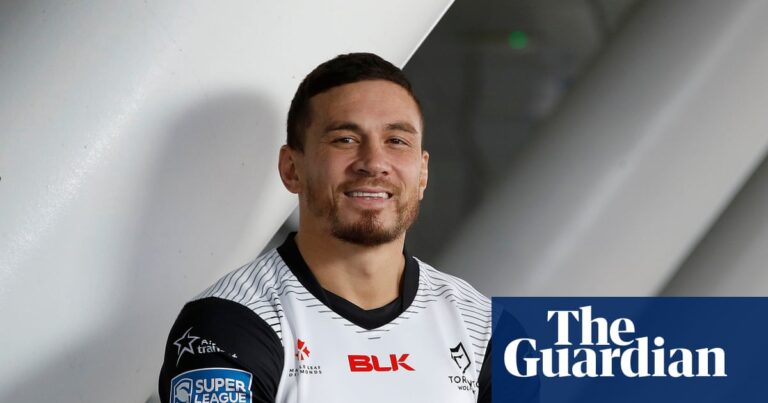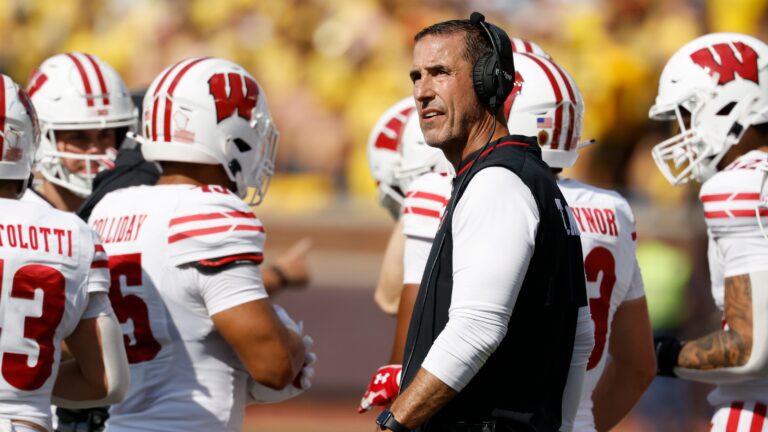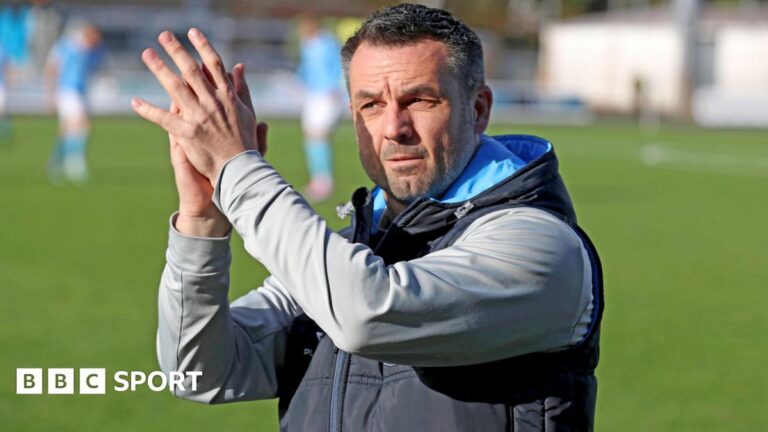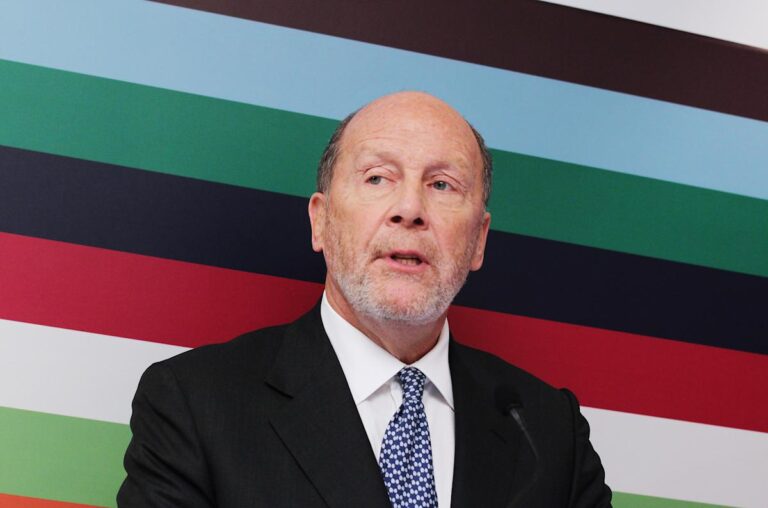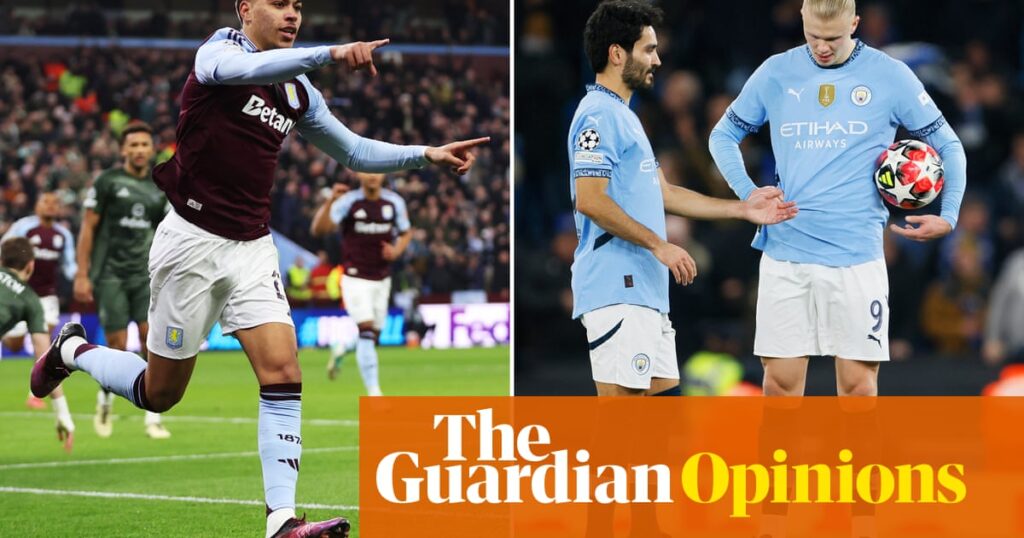
Goalkeeper
Gianluigi Donnarumma (Paris Saint-Germain)
He does have his weaknesses, such as the occasional panic under the crossed ball, but this was the season the Italian reclaimed his title as the world’s best goalkeeper. PSG’s path to glory saw him outshine Ederson, Alisson, and Emi Martínez before besting Yann Sommer in the final. Donnarumma made a series of saves only he can make, throwing that huge, rangy frame to its full expanse while playing behind a backline built to attack rather than concentrate on defence.
Defenders
Achraf Hakimi (PSG)
If this is the age of full-back being the most multipurpose player in football, then Hakimi is best in class. The Moroccan matched defensive rigour with attacking instincts that saw him score four goals and supply five assists in PSG’s run, including the opening strike of the final. His signing in 2021 was probably the first building block of the team that reigned supreme in 2025.
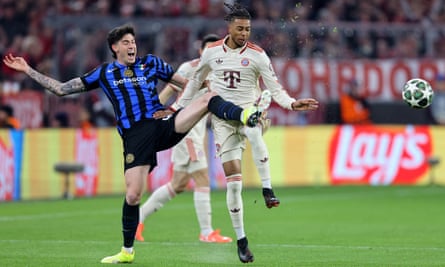
Midfielders
João Neves (PSG)
PSG’s title-winning team did not come cheap but they have invested well, with a summer deal worth €70m landing Neves, one of the most wanted young midfielders in Europe. Small but combative, Neves now stars in the best midfield in Europe in combination with Vitinha and Fabián Ruiz. He had been a slow burn through his first season. When PSG were playing to stay alive in the group stage, Neves was the match-winner against Manchester City, Seven tackles, all successful, seven shots, including a goal, he began to embody a team fighting like wild dogs to win the ball back.
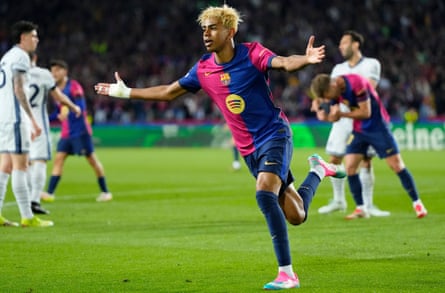
Forwards
Ousmane Dembélé (PSG)
A mark of Luis Enrique’s quality as a coach is that he made a productive, consistent player out of one of the game’s great enigmas. PSG played mostly without a centre-forward but it was Dembélé who led the line, cutting in from flanks, operating as a false No 9, interchanging with his fellow wingers, his movement creating space and angles to work with.
Khvicha Kvaratskhelia (PSG)
There may be little coincidence that once the Georgian was bought from Naples in January, PSG’s status as a giant struggling to make the knockout stages was shedded as they instead became the most decisive champions in European Cup history. The best attacking player in Serie A, a maverick talent that resembles both a throwback and the future proved a revelation in destroying defences. The English teams in particular struggled with him, and when he was going though on goal in Munich, he was able to show off his party-trick finish, at the near post.
Lamine Yamal (Barcelona)
The best team did not have the best player, and that’s how it’s supposed to work. When Barcelona were torching opposition defences, winning games from impossible positions, it seemed as if Lamine Yamal would win the Champions League at 17. He will just have to do it at 18. European defences had no answer to his speed and quality of finishing. Those slaloming runs and thunderbolt finishes against Benfica and Inter could be seen as preludes to greatness if he were not already great.
Substitutes
Emi Martínez came up big in Aston Villa’s hugely enjoyable run to the last eight. Denzel Dumfries had five goal involvements in the Inter v Barcelona semi-final. Raphinha and Serhou Guirassy were joint-top for goals, with the Brazilian outstanding for Barcelona, the Guinean a ray of light for a faded Dortmund team. Désiré Doué, scoring two goals in the final, completed PSG’s thrilling attacking trio.

